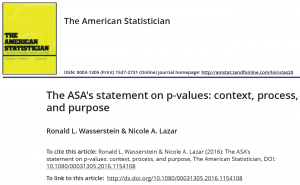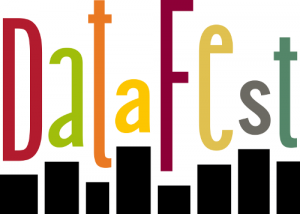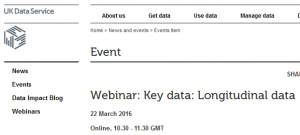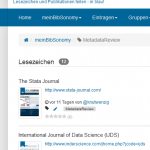
Auch Material, das in Forschungsdatenzentren anfällt, soll oft der Langzeitarchivierung zugegeführt werden, nicht zuletzt, um einen persistente Identifikator (z.B. DOI, URN, Handle) zu erhalten. Disziplinäre (z.B. EconStor, SSOAR) und institutionelle (z.B. OPUS Bamberg) Langzeitarchive scheiden wegen ihrer inhaltlichen oder formalen Vorgaben oft aus.
Wohin also mit Präsentationen oder Datendokumentationen? Eine Institution, die für schwarze Löcher bekannt ist, nimmt sich auch diesen Materials an, das freilich in den 25 PB, die jährlich am LHC produziert werden, nicht mehr als ein Tropfen im Ozean ist:
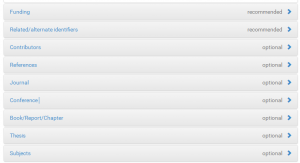
Zenodo, ist nicht wählerisch und akzeptiert digitales Material jeglicher Provenienz, also auch Poster, Präsentationen, Datensätze und Software (es gibt eine GitHub-Integration), an. Der Zugang kann unter einer von 101 Lizenzen ermöglicht, mit einem Embargo versehen oder – für die Kontrollfreaks – auf Antrag gewährt werden. Dabei wird eine DOI generiert, die auch vorreserviert werden kann, um sie vor dem Upload noch in das zu archivierende Material zu integrieren, was beispielhaft ist. Das Objekt kann in eine Sammlung aufgenommen und mit einer Vielzahl an weiteren Metadaten versehen werden. Ein zusätzliches Deckblatt wird nicht eigefügt. Der Account kann mit einem ORCID– und/oder GitHub-Konto verknüpft werden, was die Anmeldung einfacher macht.
Die DDI Alliance plant derzeit, den Dienst für die Archivierung der Präsentationen auf den jährlichen Nutzerkonferenzen zu nutzen und hat dafür eine Zenodo-Community eingerichtet.
Wie bei anderen Langzeitarchiven kann man mit dem persistenten Identifikator, bzw. des bereits schon daraus abgeleiteten (!) Links, nicht in jedem Fall unmittelbar auf das Archivgut verlinken, sondern wird auf eine landing page verwiesen. Man kann sich zwar einen Link konstruieren, dessen Persistenz ist aber nicht garantiert. Das ist aber nicht zuletzt ein konzeptionelles Feature (und eher kein Bug) des Systems persistenter Identifikatoren: Eine Auflösung (resolution) muss eben noch stattfinden, damit man das identifizierte Objekt auch erreicht.
Zenodo wird vom CERN betrieben und als Bestandteil der openAIRE-Infrastruktur von der Europäischen Union im Rahmen von Horizon2020 finanziert.

